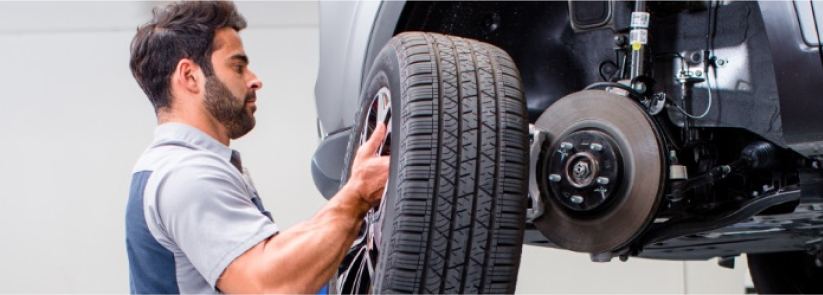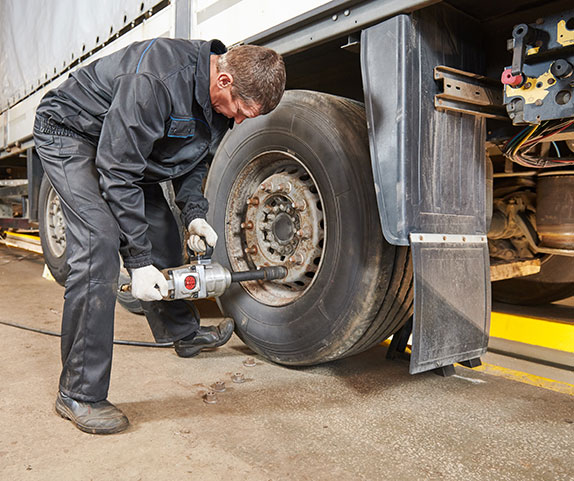Drive with Self-confidence: GMC Tires Service at Morris Tires
Drive with Self-confidence: GMC Tires Service at Morris Tires
Blog Article
Tire Service: The Effect of Weather
When it comes to guaranteeing ideal performance and safety when driving, comprehending the effect of climate condition on tire solution is vital. From scorching warmth to icy roads, each climate element can substantially influence tire capability and overall driving experience. By diving into the results of differing weather condition problems on tires, vehicle drivers can get valuable understandings that may enhance their vehicle's efficiency and durability. In this discussion, we will discover the complex connection in between weather and tire service, losing light on the importance of weather-specific tire maintenance techniques and factors to consider.
Heat and Tire Performance
When subjected to high temperature levels, tires experience modifications in efficiency that can dramatically impact automobile safety and security and handling. The warm produced from prolonged driving or hot climate conditions causes the tire rubber to soften, resulting in lowered step life and enhanced wear. As the rubber comes to be softer, the tire's hold when driving decreases, influencing braking distances and total traction. In extreme cases, too much heat can even cause tire blowouts, posturing an extreme safety risk to the automobile and its occupants.

Winter Impacts
Cold climate problems can have a significant effect on tire performance and safety. As temperature levels decrease, tire rubber can solidify, bring about lowered traction on icy or snow-covered roadways. In winter, tires may additionally lose atmospheric pressure a lot more quickly, which can affect dealing with and fuel performance. Furthermore, cool temperatures can trigger tire sidewalls to tense, raising the risk of damage from pockets or other road hazards.
To reduce the impacts of winter on tires, it is vital to frequently inspect tire pressure and inflate them to the producer's suggested levels. Using winter or all-season tires designed for chilly climate problems can also enhance grip and grip on icy or snowy roads. Correct tire upkeep, consisting of normal examinations for wear and damages, becomes much more vital throughout colder months to ensure optimal performance and safety.
Rainy Conditions Effect
During rainy conditions, tire performance and security can be significantly influenced by the wet roadway surface areas and minimized exposure. The step pattern of tires plays an important duty in keeping grip on wet roadways. Tires with damaged footsteps are more vulnerable to hydroplaning, where a layer of water develops up between the roadway and the tire surface area, causing loss of grip. To fight this, motorists should routinely evaluate their tires for appropriate tread deepness and think about purchasing tires specifically created for wet conditions.
Furthermore, wet climate can additionally lower exposure, making it testing for drivers to see the road in advance clearly (GMC Tire Service). In such problems, it is vital to adjust driving speeds accordingly and maintain a safe adhering to distance to enable abrupt quits. Properly filled with air tires can likewise help in keeping control on wet roadways by offering better handling and grasp
Snow and Tire Safety
When driving in snowy problems, having the best tires can make a considerable distinction in security and performance. Wintertime tires are created with unique rubber compounds and walk patterns to give much better grip on snow and ice contrasted to all-season tires.

It is essential visite site to follow producer instructions when setting up and utilizing tire chains to protect against damage to the tires and automobile. By picking the ideal tires, preserving appropriate rising cost of living, and considering extra traction help like tire chains, chauffeurs can enhance their safety when browsing snow-covered roadways.
Weather-Related Tire Maintenance
When encountered with different climate condition, appropriate tire maintenance ends up being an important element of vehicle security and efficiency. Weather-related tire upkeep incorporates a variety of practices targeted at guaranteeing optimum tire function and durability in different weather condition circumstances. One crucial element of weather-related tire upkeep is tire pressure guideline. Varying temperatures can create tire stress to vary, impacting grip and fuel effectiveness. Frequently adjusting and checking tire pressure according to supplier suggestions is necessary for secure driving in transforming weather. Furthermore, tire step depth plays a substantial duty in handling various climate elements. Tires with adequate tread depth provide far better grasp on wet or icy roads, lowering the threat of skidding or hydroplaning. Examining tire tread consistently and changing tires when tread wear gets to a specific deepness is essential for maintaining traction and stability in unfavorable weather condition. By prioritizing weather-related tire maintenance, motorists can boost safety, improve vehicle efficiency, and prolong the life expectancy of their tires.
Final Thought
Finally, climate condition have a considerable effect on tire efficiency and safety and security. From heat influencing tire stress and use to cold weather minimizing grip, it is crucial to take into consideration the climate when preserving and utilizing tires. Rainy conditions can decrease grip and bring about hydroplaning, while snow can increase the risk of crashes if tires are not appropriately geared up. Weather-related tire upkeep is crucial in making sure optimal efficiency and security on the roadways.
In this discussion, we will certainly explore the complex partnership in between weather conditions and tire solution, shedding light on the importance of weather-specific tire maintenance methods and factors to consider.

Report this page